The world is changing. While there is a lot of hype surrounding AI, most people outside the tech industry do not fully understand what it really is. Automation has been the stuff of science fiction for decades, but today there are numerous examples of Artificial Intelligence (AI) being used in a variety of ways. According to reports, the AI market is predicted to be 190 billion by 2025. As artificial intelligence becomes an increasingly important part of our daily lives, it is going to change the way we do almost everything, from the jobs we do to the way we think about problems. AI is everywhere, from phones to Google search results, from Siri to the self-driving car. In fact, there are more than 100 million artificial intelligence applications used by people every day. That’s a lot of AI!
Artificial Intelligence is the crown jewel of modern technology. It is poised to transform every type of work, and because AI is now a critical component of technology, every industry will be impacted. AI software handles complex and time-consuming tasks, freeing up human workers to do specialized tasks. It is becoming easier for even tech novices to use AI and Machine Learning.
The knowledge of AI just in the hands of research scientists and tech giants will not be sufficient as it pervades every industry. This summons the rise of a new kind of literacy, AI Literacy. AI Literacy will accompany Digital Literacy in the resources of the future.
But wait…
What is AI Literacy, and how can it be obtained?
AI Literacy is the ability to recognize and form opinions about the role of artificial intelligence in our lives, enterprises, and communities. It is a skill that, in the near future, will be a necessity for anyone wishing to stay competitive.
Today, artificial intelligence is everywhere. It is the invisible force that helps shape your world. AI is set to become even more useful and prominent in the coming years. It is used in a lot of areas of life. To name a few, AI has democratized voice assistants, reduced research time for scientists and doctors and improved the accuracy of their findings, made our online lives easier, and made our lives in the future more efficient.
For AI Literacy, you do not need to have a Ph.D. in Computer Science. Extensive knowledge of AI can be acquired through the four Cs:
Concepts
While the buzz around Artificial Intelligence (AI) has mostly focused on the potential dangers that could arise from a self-aware machine, AI has more practical applications that are already being used today. Look around you, AI has already become a part of everyday life, and you do not even know it. That is because AI operates via certain core concepts including machine learning, neural networks, and deep learning that, while intimidating on the surface, are easy to understand.
Context
Artificial Intelligence is being used for more than just flashy killer robots. The context of AI is the environment in which AI is being used, and it is not the same all the time. It is a result of how humans have integrated AI into their lives. For example, AI in a factory is used for efficient production, but when AI is used in an airport security system, the context of AI is safety. Another example of the context of AI is how robots are used in homes. Some are used for playing and others are used for cleaning.
Capability
As AIs become more widespread, the capabilities of AI in different fields will become more and more apparent, leading to a range of actions that humans can take. For some, these capabilities will be comforting, like the AI that keeps track of their daily health information, or the AI that automatically drives their car to work. For others, these capabilities may be disconcerting, like the AI that monitors their internet search history, or the AI that controls their home security system. The key is to understand what AI is capable of so that you can make the right decision for yourself.
Creativity
Artificial Intelligence is becoming more and more ubiquitous in our day-to-day lives. With the recent success of AI in the form of bots being able to compose music that can be considered “good” by human standards, and now more recently with the ability to actually write an entire short story using AI, the discussion about the future of creativity in the hands of machines is on the table.
What the Future Holds
AI has existed for decades, but we are just beginning to harness its power. It has made some impressive strides, thanks to the steady accumulation of data, the development of powerful computer processing and storage power, and the development of sophisticated algorithms. In the years to come, AI is poised to make even more progress as technology permeates every aspect of the business.
Extensive knowledge of AI Literacy will enable governments, industries, countries, and people to leverage AI technology securely and effectively. With more and more people being AI Literate, we can look forward to seeing yet more usages and ingenious applications of this transformative technology.





